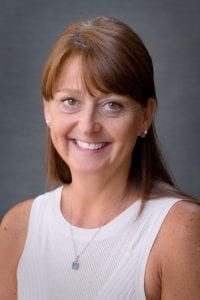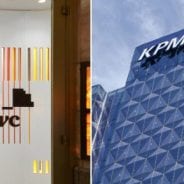Search results for :
News Roundup – Berkeley MBA on Solving Homelessness, Fuqua Dean on Immigration, and More
Let’s take a look at some of the biggest stories from this week, including a Berkeley Haas MBA alum approaching the California housing crisis.
Andrew Hening, MBA 17, On Solving Chronic Homelessness – Berkeley Haas Newsroom
Berkeley Haas recently featured an interview with Andrew Hening, an alum of the Evening & Weekend MBA (EWMBA). Hening has worked with great results to to reduce homelessness in the Marin County area of San Francisco.
Hening, who graduated from the EWMBA program in 2017, is the Director of Homeless Planning & Outreach for the city of San Rafael, California. Before receiving his degree at Haas, he considered pursuing a career in law. He returned to his hometown of Richmond, VA after college to take a job as a paralegal, but realized that his passion lay elsewhere.
“I started taking time off to volunteer in the community,” he says. “I’d done a lot with youth and tutoring, but then I participated with a Project Homeless Connect event, which is essentially a resource fair for people living outside. It was my first exposure to homelessness, and it had a huge impact on me.”
Through his involvement with AmeriCorps VISTA, he accepted a job as the Santa Clara County Project Homeless Connect Coordinator in 2010. Hening then moved on to his current position in San Rafael which he has held since 2016. Since he began his tenure, homelessness in Marin County has dropped by 28 percent. Hening credits a “shockingly simple” process of identifying those who are chronically homeless, then providing Section 8 funding for them and hiring capable landlords and property managers who were sensitive to the homeless problem.
Of the wisdom he gleaned from his time at Haas, Hening says, “Being in the EWMBA program was amazing because I was constantly bringing fresh ideas back to the team—so many things that seemed tangential to homelessness but weren’t. For example, from our operations class, I was seeing ways to apply supply chains and turnover to our housing placements and the speed at which people become and resolve their homelessness.”
You can read here for more on Hening, his time at Haas, and his work on the California housing crisis.
Two Michigan Ross Alumni Recognized For Their Outstanding Contributions to the Ross Community – Ross News Blog
Michigan Ross recently honored Mark Petroff, MBA ’98, along with Cathy Bessant, BBA ’82 last month for their achievements in their respective fields. The award ceremony took place during Ross’ annual Reunion weekend.

Petroff, who received the Bert Wertman Alumni Service Award, serves as a mentor to students via the Michigan Ross Alumni-in-Residence program. He is the president and CEO of OneMagnify, a marketing and analytics company, and was formerly a partner in the Financial Advisory Services practice of Deloitte in its automotive industry segment. Petroff was also a general securities principal in Deloitte Corporate Finance LLC, the company’s investment services group.
Cathy Bessant, BBA ’82, received the 2019 David D. Alger Alumni Achievement Award for her accomplishments in FinTech. She is the chief operations and technology officer at Bank of America. She has also been acknowledged as one of American Banker’s “Most Powerful Women in Banking” for the third year in a row.
Bessant received honor on Institutional Investor magazine’s annual Tech 40 list of 2017, along with the OUTstanding LGBT+ Ally Executives in the Financial Times list of 2018. She also appeared on Working Mother magazine’s “50 Most Powerful Working Moms” list of 2017. You can read more on Ross’ alumni honors here.
Smeal Teaching Support Specialists Pave the Way in the Online Classroom – Penn State Smeal News
The Penn State University Smeal College of Business announced the integration of Teaching Support Specialists (TSS) to assist students in its highly regarded Online MBA (OMBA) program.
Janet Duck, faculty director of the OMBA, sought to increase student engagement through employing the mentorship of these specialists. The purpose of the TSS, Duck says, is “to drive engagement in the online classroom, and to inspire learning through contemporary application of content … [Mentors are responsible for] facilitating rich online discussions, providing feedback for students on formative assignments, guiding team projects, and moderating live video sessions.”
The specialists are themselves OMBA grads, so they’re able to impart first hand wisdom on the value of their degree. One specialist, Cheryl Horten, worked in the pharmaceutical industry for fifteen years. She says:
“Having completed Penn State’s iMBA, which is the previous incarnation of the OMBA, I not only have a love for Penn State, but an appreciation and understanding of what it’s like for these students … I empathize with working all day and coming home to do school work, while taking care of your family—this is an opportunity for me to help these students be successful.”
Duck describes online education as a “team sport” that will soon become the norm in today’s increasingly digital environment. The TSS program, she believes, is the start of a trend for MBAs pursuing online or blended degrees. “Ongoing peer-to-peer sharing and identifying professional development needs will be key to growing and evolving a customized student experience,” she says.
You can read here for more on the TSS program.
Dean Bill Boulding Leads Business School Push Explaining How Immigration Benefits Economies – Fuqua Insights
Duke University’s Fuqua School of Business Dean Bill Boulding recently visited the nation’s capital with a strong message. The economic success of the United States, he says, is reliant upon an inclusive and responsible immigration policy.
Boulding is chair of the Graduate Management Admission Council (GMAC), and he made his statement on behalf of fifty business school deans from across the country.
“Economists have long studied the connection between immigration and economic growth. Beyond the academic research, we also have GMAC data showing a significant shift in where students want to study around the world, which is an early indicator of which regions of the world are winning the talent race,” he says.

The statement came in the form of a public letter to U.S. government leaders and published in the Washington D.C. edition of the Wall Street Journal. It also received headline status in The Washington Post, The Hill and on NPR’s Marketplace.
The statement suggested some tangible solutions such as increasing the number of H-1B visas for well educated international workers possessing specialized skills. “A combination of our outdated laws, artificial regional and skills-based caps on immigration, and recent spikes in hostility are closing the door to the high-skilled immigrants our economy needs to thrive,” stated the letter.
You can read more on the GMAC statement here.
The 99 Percent Economy – USC Marshall News
Paul Adler, Professor of Management and Organization at the USC Marshall School of Business, has some strong words about the need for a vast shift in the U.S. economic system.
“We are already over the climate-change cliff,” he says.
“We need to find a way to mobilize a massive, sustained green R&D effort and drive the resulting new technologies into widespread use and abandon many economic assets that are environmentally unsustainable and get us all to change our living habits … and achieve all this in time to avert the collapse of ecological and social systems.”
His book, The 99 Percent Economy: How Democratic Socialism Can Overcome the Crisis of Capitalism, was released by Oxford University Press in October. Adler’s basic argument is that capitalism has brought enormous growth and well being to the U.S., but that the costs are growing more rapidly than the benefits. Climate change, he argues, has pushed our society to a crisis point. One of the most viable solutions, he argues, is a democratic form of socialism.
He suggests a variety of systematic changes for corporate organizations to set the groundwork for a sweeping change in the way the country’s resources, both natural and economic, are allocated.
For more on Adler’s work, read here.
MPS in Management
Cornell Johnson MPS in Management Program Structure
The MPS in Management program provides students with non-business undergraduate degrees and limited or no full-time work experience with the foundation necessary to pursue careers in business. Over the course of two semesters, students pursue a curriculum in a very collaborative atmosphere, encouraging students to work together and support each other as they develop key business skills.
Curriculum
With a curriculum covering management, communication, finance, economics, analysis, and strategy, students in this one-year program (two semesters) garner valuable knowledge and experience in preparing for the world of management. In addition to the 30 credit hours of this diverse core curriculum (and six credit hours of electives), students also perform three required Industry Practicums and are provided career trek opportunities.
Class Profile
The MPS in Management class at Cornell features about 30 students that average around 23 years old, who are usually seeking a pre-experiential degree before fully embarking on their careers. About 44 percent of the class are women and about 75 percent are international students.
Careers
A career development team at the graduate level partners with MPS candidates to strengthen leadership skills and foster career advancement. Students are connected to career opportunities through leadership, team, and career coaching; networking exchanges and events; and forums.
Tuition, Scholarships, and Financial Aid
Current tuition for the Cornell MPS in Management program is $56,500 (USD) total for the entire program. There is no need-based aid available for Johnson’s graduate/professional students. There are federal student loans available to U.S. citizens and U.S. permanent residents (green card is required).
The Cornell MPS in Management program is a proud member of the Yellow Ribbon Program. Formal submission of Yellow Ribbon application and Certification of Eligibility (COE) are required for consideration.
Admissions
Prerequisites:
● Undergraduate degree with a minor in business, or its equivalent. A limited number of students who majored in a business discipline at the undergraduate level will be admitted and offered a customized graduate curriculum.
Requirements for admission:
● Introductory courses in Economics, Statistics, Business or Management, Financial Accounting, Finance, and Marketing
● Official transcripts from an accredited college or university or equivalent international degree
● GMAT or GRE scope report
● Two letters of recommendation
● Three essays
● Resume
● A non-refundable application fee of $105 (waived for all current or former U.S. military members and for all Cornell students and recent alumni)
Application deadlines are as follows:
For Fall Intake:
● Round One: December 1
● Round Two: January 15
● Round Three: March 1
● Round Four: April 15
For Spring Intake:
● October 15
MPS in Management – Accounting Specialization
Cornell Johnson MPS in Management – Accounting Specialization Program Structure
The MPS in Management with Accounting Specialization program offers a flexible curriculum designed to prepare students for a variety of accounting-related outcomes, including public practice in auditing, taxation, consulting, corporate accounting, banking, and public accounting. In addition to pursuing a small set of core courses, students work closely with their advisor to create individual curricula tailored to accommodate their career goals and prior undergraduate coursework. Over the course of two semesters, the program satisfies educational requirements needed to take the Certified Public Accountant (CPA) exam.
Curriculum
With a curriculum covering accounting, management, financial analysis, reporting, auditing, taxation, and related topics, students in this two-semester program garner valuable knowledge and first-class experience in preparing for the world of accounting management. In addition to the 30 credit hours of this diverse core curriculum (and six credit hours of electives), students also perform three required industry practicums and have the option to take career treks.
Class Profile
The MPS in Management – Accounting Specialization class at Cornell features about 45 students that average around 24 years old, who are usually seeking a pre-experiential degree before fully embarking on their careers. About 50 percent of the class are women and about 60 percent are international students.
Careers
A career development team partners with MPS students to strengthen leadership skills and foster career advancement. Students are connected to career opportunities through leadership, team, and career coaching; networking exchanges and events; and forums.
Tuition, Scholarships, and Financial Aid
Current tuition for the Cornell MPS in Management – Accounting Specialization program is $56,550 (USD) total for the entire one-year program. There is no need-based aid available for Johnson’s graduate/professional students. There are federal student loans available to U.S. citizens and U.S. permanent residents (green card is required).
The Cornell MPS in Management – Accounting Specialization program is a proud member of the Yellow Ribbon Program. Formal submission of Yellow Ribbon application and Certification of Eligibility (COE) are required for consideration.
Admissions
Prerequisites:
● Introductory courses in Economics, Statistics, Business or Management, Financial Accounting, Finance, and Marketing
● Intermediate Accounting I (3 credits) (before matriculation)
Requirements for admission:
● A completed undergraduate degree of 120 credits or more
● Official transcripts from institutions attended
● GMAT/GRE score report
● Two letters of recommendation
● Three essays
● Resume
● A non-refundable application fee of $105 (waived for all current or former U.S. military members and for all Cornell students and recent alumni)
Application deadlines are as follows:
For Fall Intake:
● Round One: December 1
● Round Two: January 15
● Round Three: March 1
● Round Four: April 15
For Spring Intake
● October 15
MPS in Real Estate
Cornell Johnson Master of Professional Studies (MPS) in Real Estate Program Structure
Cornell’s Baker Program (MPS) in Real Estate offers a comprehensive, professional graduate-level curriculum that educates the next generation of real estate industry leaders taught by the largest on-campus real estate field faculty in the country. The Baker Program two-year, 62-credit-hour, full-time, on-campus graduate experience with concentration options, two-week-long treks, and electives.
Curriculum
The two-year Baker Program fully prepares you to become an expert and leader in the industry, rather than simply scratching the surface with a one-year course of study.
At the end of the first semester, students select a concentration: an area of specialized expertise that distinguishes them in the industry. A summer internship between the first and second year typically aligns with the chosen area of concentration, and gives students a distinct edge in finding leadership positions in the industry upon graduation.
Baker students embark on week-long domestic or international site visit between the fall and spring semesters which include meetings with alumni and local real estate leaders, and exploration of a variety of environments around the world.
Class Profile
The Baker Program (MPS) in Real Estate Class at Cornell features about 35 students that average around 26 years old, who carry an average of a few years of relevant work experience. About 25% percent of the class are women.
Careers
The Cornell School of Hotel Administration’s Office of Student Services, in addition to the broader Cornell Career Services, partner with Baker Program MPS candidates to strengthen leadership skills and foster career placement and advancement. These services can provide the tools needed to explore careers and develop a summer or full-time job-search strategy. The programs and services offered are tailored to meet the needs of Baker Program in Real Estate students.
Tuition, Scholarships, and Financial Aid
Current tuition for the Cornell MPS in Real Estate program is $113,100 (USD) total for the entire 24-month/4-semester program.
Most Baker Program students rely on a combination of federal and private loans to finance their educational and living expenses. There are several options available for financial aid, for those who qualify. If you submit your application by one of the Baker Program’s first two deadlines—December 1 and January 15—you will automatically be considered for merit-based funding. An average of 33 percent of incoming students receive funding of varying amounts. In addition, need-based scholarships, fellowships, assistantships, teaching assistantships, loans, and external scholarships are available.
The Cornell Baker Program (MPS) in Real Estate is a proud member of the Yellow Ribbon Program. Formal submission of Yellow Ribbon application and Certification of Eligibility (COE) are required for consideration.
Admissions
Applicants must provide each of the following:
● Completed coursework in microeconomics and/or financial accounting prior to enrollment, though this coursework can be satisfied before matriculation begins.
● Official academic records or transcripts from an accredited college or university or equivalent international degree.
● GMAT or GRE Score Report
● Two letters of recommendation
● Statement of Purpose essay
● A non-refundable application fee of $105 (waived for all current or former U.S. military members and for all Cornell students and recent alumni)
Application deadlines are as follows:
● Round One: December 1
● Round Two: January 15
● Round Three: March 1
● Round Four: April 15
MPS in Applied Economics and Management
Cornell Johnson Master of Professional Studies (MPS) in Applied Economics and Management
The MPS in Applied Economics and Management program provides a cross-disciplinary education rooted in applied economics that allows students without undergraduate business degrees and limited or no full-time work experience to develop industry-specific skills in one of five specialized concentrations. The program relies heavily on performance learning and real-world problem solving.
Curriculum
The curriculum incorporates behavioral economics, quantitative/computational methods, international/development economics, food/agricultural/environment/energy/resource economics, and problem solving. This one-year, 30-credit-hour, program features multiple real-world projects.
Students have the option to choose one of five concentrations:
● Applied Behavioral Economics and Individual Choice (ABEIC)
● Technology Management
● Environmental, Energy, and Resource Economics (EERE)
● International and Development Economics (IDE)
● Food and Agricultural Economics (FAE)
Additionally, there is a dual-degree program option—MPS in AEM combined with a Master in Management (MIM)—offered in conjunction with CEMS, which can be read about in detail on the MPS in AEM with CEMS MIM website.
Class Profile
The MPS in AEM Class at Cornell features about 60 students that average around 23 years old, who are usually seeking a pre-experiential degree before fully embarking on their careers. About 75 percent of the class are women.
Careers
Graduates of the MPS in AEM program are assisted by Cornell’s SC Johnson College of Business career management team. Students have gone on to work for companies such as Goldman Sachs, Google, and the Busara Center for Behavioral Economics in Nairobi, Kenya.
Tuition, Scholarships, and Financial Aid
Current tuition for the Cornell MPS in AEM program is $56,500 (USD) total for the entire program. Federal student loans are available to U.S. citizens and U.S. permanent residents (green card is required).
The Cornell MPS in AEM program is a proud member of the Yellow Ribbon Program. Formal submission of Yellow Ribbon application and Certification of Eligibility (COE) are required for consideration.
Admissions
Applications are considered on a rolling basis.
Requirements:
● Official transcripts (with bachelor’s degree) from an accredited university
● GMAT or GRE scores
● Two letters of recommendation
● Statement of purpose essay
● A non-refundable application fee of $105 (waived for all current or former U.S. military members and for all Cornell students and recent alumni)
● TOEFL or IELTS if required
Application deadlines are as follows:
● Round One: December 1*
● Round Two: January 15*
● Round Three: March 1
● Round Four: April 15
* International applicants are encouraged to apply for the round 1 and 2 application deadlines.
Master of Management in Hospitality
Cornell Johnson Master of Management in Hospitality (MMH) Program Structure
The AACSB-accredited Master of Management in Hospitality (MMH) program is a three-semester (16-month), 30-credit-hour, professional degree program that provides a thorough grounding in business management in the context of the hospitality industry. The MMH curriculum balances a solid graduate business core curriculum (finance, marketing, accounting, etc.) with options to cultivate a career-focused specialization in fields including marketing, operations, revenue management, entrepreneurship, sustainability, beverage management and more. Students can also pursue the Graduate Minor in Real Estate.
Curriculum
The MMH curriculum incorporates corporate finance, managerial accounting, operations and marketing management, resources development and planning, leadership, and related studies.
Class Profile
Each Master of Management in Hospitality (MMH) class at Cornell features about 50 students that average around 27 years old with an average of a few years of relevant work experience. About 65 percent of the class are women.
Careers
● 42 percent are employed in the real estate, banking/financial services, and e-commerce industries
● 94 percent reported employment within 6 months of graduation
● 36 percent are employed in hotel resort-corporate/property and the restaurant industry
Other areas of employment include but are not limited to design, distribution, event planning, food manufacturing, and senior living.
Tuition, Scholarships, and Financial Aid
Current tuition for the Cornell MMH program is $84,825 (USD) total for the entire 16-month/3-semester program.
Students normally pay for their education through multiple funding sources, including loans and outside grants. Other possible sources of funding include your employer, chambers of commerce, Fulbright offices, government agencies, trade associations, and foundations.
Federal student loans are available to U.S. citizens and U.S. permanent residents (green card is required).
Several Cornell-based financial aid options are available, from loans and veterans programs to School of Hotel Administration (SHA) scholarships and external scholarships.
The Cornell MMH program is a proud member of the Yellow Ribbon Program. Formal submission of Yellow Ribbon application and Certification of Eligibility (COE) are required for consideration.
Admissions
Requirements:
● Essays: Statement of Purpose (focusing on background, aspirations, character, personal goals, etc.); MMH Career Essay; MMH Character Essay
● Official transcript from an accredited college or university or equivalent international degree.
● GMAT or GRE Score Report
● Two letters of recommendation
● Interview: Video Essay
● English Language Proficiency Requirement (International applicants only)
● A non-refundable application fee of $105 (waived for all current or former U.S. military members and for all Cornell students and recent alumni)
● Resume/CV
Application deadlines are as follows:
● Round One: December 1*
● Round Two: January 15
● Round Three: March 1
● Round Four: April 15
* Application fee is waived for early applicants
Executive MBA Americas
Cornell Johnson Executive MBA Americas Program Structure
The Executive MBA Americas program is a unique, multi-national program built for ambitious, seasoned professionals looking to advance their careers through a rigorous educational experience that combines Ivy League prestige with local, weekend-based learning.
Classroom Locations:
| United States | Canada | Mexico and South America |
|---|---|---|
| Dallas, TX | Calgary, AB | Mexico City, Mexico |
| Houston, TX | Edmonton, AB | Monterrey, Mexico |
| Ithaca, NY | Montreal, QC | Lima, Peru |
| Los Angeles, CA | Ottawa, ON | Santiago, Chile |
| New York City, NY | Toronto, ON | |
| Salem, NH | Vancouver, BC | |
| San Francisco, CA | ||
| San Jose, CA | ||
| Seattle, WA | ||
| Washington DC |
Curriculum and Experience
With a curriculum that incorporates management fundamentals, strategic thinking, leadership, entrepreneurship, financial principles, and more, this 17-month program features networked weekend classes that bring together 20 cities in North and South America that are coupled with residential sessions—accounting for approximately 40 percent of the program experience—held at the Cornell University (Ithaca, NY) and Queen’s University (Kingston, ON, Canada) campuses. Graduates earn an MBA from each university.
Class Profile
The Executive MBA Americas class at Cornell features 160 students that are around 36-years old and who carry an average of 12 years of relevant work experience. About 25 percent of the class is made up of women students.
Careers
The Cornell Executive MBA Career Development team and the Queen’s University Career Services center partner with Executive MBA candidates to strengthen leadership skills and foster career advancement. Through leadership, team and career coaching, networking exchanges and events, forums and a dedicated EMBA Career Management LinkedIn Group, students are immediately connected to a variety of life-long career development resources.
Tuition, Scholarships, and Financial Aid
Current tuition for the Cornell Executive MBA Americas program is $148,890 (USD). A $5,000 (USD) deposit is required at the time of admission.
There is no need-based aid available for Johnson’s graduate or professional students. There are federal student loans available to U.S. citizens and U.S. permanent residents (green card is required).
The Cornell Executive MBA Americas program is a proud member of the Yellow Ribbon Program. Formal submission of the Yellow Ribbon application and Certification of Eligibility (COE) are required for consideration.
Admissions
Applications are considered on a rolling basis. In advance of formally submitting an application, applicants may complete a pre-assessment to review if they are a good fit for the program.
The EMBA Americas application includes:
● Resume
● Organizational chart
● Four required essays
● Official transcripts from all undergraduate and graduate schools attended
● Two letters of recommendation; one of the letters should be from your immediate supervisor
● $200 (USD) application fee
Application deadlines are as follows:
November 15, 2021: Fall Deadline
January 15, 2022: Priority Consideration
March 15, 2022: Expedited Decision
May 15, 2022: Final Application Deadline
Interviews are by invitation only and are conducted shortly following the submission of a complete application. Decisions are communicated within two weeks of the interview.
Where Should I Work: Deloitte or Ernst & Young?
Deloitte and Ernst & Young (EY) are considered two of the “Big Four” accounting firms. Along with KPMG and PwC, the Big Four naturally attracts top MBA talent looking to put their degrees to use in a variety of tax, accounting, and consulting services.
Continue reading…
Top Companies Hiring MBAs in Ohio
Long known as the Industrial Capital of the United States, Ohio’s story is in many ways the tale of two states. One version of Ohio has suffered a radical decline in traditional labor jobs since its manufacturing heyday. The other reinvented itself by building new industry in the wake of drastic technological and economic changes.
Continue reading…
Top 5 MBA Destinations: The Top Hiring Companies in Manchester, UK
With a rich history dating back thousands of year, the Northern UK city of Manchester is known for its industrial heritage, textile industry, literature, the Trade Union movement, women’s suffrage, and, of course, Morrissey.
Continue reading…
Master of Professional Accountancy
UC San Diego Master of Professional Accountancy Structure
The UC San Diego Master of Professional Accountancy degree at Rady School of Management is a full-time program. Courses are expected to be completed over three consecutive quarters, which is nine months. The third quarter is a capstone course where students receive hands-on experience working in groups at organizations ranging from technology giants to non-profits to the Big Four accounting firms. The capstone is an ideal venue for the firms to get to know the students and the students to obtain real industry experience that aids them in their job search.
Curriculum
The UC San Diego Master of Professional Accountancy program is a 50-unit degree program. The curriculum consists of seven four-unit core courses, two one-unit professional seminars, and 20 units from a set of elective courses. The nine-month program is designed to address the issues of needs faced by innovation-driven, high-technology companies. Students will fulfill the CPA accounting education requirements for student (who majored in accounting in undergraduate programs and most students who minored in accounting), receive dual emphasis on U.S. GAAP (Generally Accepted Accounting Principles) and IFRS (International Financial Reporting Principles), and work in diverse teams as you learn key business functions such as marketing, finance and operations.
Class Profile
Recent figures showed that 34 students are enrolled UC San Diego Master of Professional Accountancy class, with 41 percent identifying as male and 59 percent identifying as female. The average student age is 23.
Careers
The Rady School Career Management Center provides students with a network of support as they pursue their post-graduation career goals.
Rady Graduate Career Management Center actively works with Rady students to provide assistance during the application process for internships or full-time employment, and prepare them for career success through guidance and mentoring.
Tuition, Scholarships, and Financial Aid
The most recent available tuition figures show that fees for UC San Diego Master of Professional Accountancy students is $1,260 per unit.
To be considered for financial assistance or non-subsidized loans, students should complete the Free Application for Federal Student Aid (FAFSA).
Rady provides limited merit-based fellowship support to exceptional individuals. All domestic and international admitted students are invited to apply for a Rady fellowship by requesting the Fellowship Application from the Graduate Admissions office after they receive their official offer of admission.
Admissions
Prospective students should have a solid accounting foundation. Students with non-accounting undergraduate degrees and less than 24 quarter units (16 semester units) in accounting will be considered on an exceptional basis.
Master of Professional Accountancy application requirements:
a. Online application form
b. Transcripts
c. Resume or CV
d. Accounting Background
e. Recommendations
f. Statement of Purpose
g. GMAT or GRE Scores
h. TOEFL, IELTS or PTE Score (for international applicants only)
i. $120 Domestic Application Fee, $140 International Application Fee
The Rady School of Management is accepting admissions to the Master of Professional Accountancy fall 2020 cohort on a rolling basis.
Masters Advantage: Business Analytics or Accounting?
A specialized master’s degree can be a valuable tool for enhancing your career prospects. If you have a specific career in mind—financial analysis, marketing, statistics, etc.—a master’s degree in your specialty can provide you with the advanced training you need to be successful. So, the question is, what specialized masters is right for you and will give you the advantage you want?
To help you out, we’re putting the most popular master’s degrees head-to-head in our new series. First up, we’re comparing Business Analytics and Accounting.
What is a Master’s in Business Analytics?
A Master’s in Business Analytics is designed for students interested in big data. These individuals are interested in using machine learning algorithms to process data and draw conclusions in everything from sports to consulting, manufacturing, and healthcare. It’s all about making sense of vast amounts of data to streamline business.
What is a Master’s in Accounting?
A Master’s in Accounting is exactly what it sounds like—it’s hyper-focused on accounting. Individuals who choose this path are interested in completing their CPA examination and pursuing a career in corporate accounting. You’ll be prepared to take a strategic accounting role in audit, tax, financial management, and more.
Business Analytics or Accounting: Coursework
There’s some overlap in the coursework you’ll take as an accounting master’s student and a business analytics student. Both master’s programs delve into financial topics and include finance-related courses. In fact, some Master’s in Business Analytics programs offer a professional track in finance.
Also, in both cases, you’ll dive into analytical techniques and data modeling—though in the Accounting program it will always emphasize finance and accounting areas whereas Business Analytics tends to be more generic.
However, that’s where the similarities end. In Business Analytics, you’ll dive deep into computer programming, statistics, machine learning, and visualization. On the other hand, a Master’s in Accounting will take you into financial reporting, auditing, business taxation, business law, and management accounting.

Business Analytics or Accounting: Accessibility
Both master’s degrees can typically be completed in 12 months with some programs lasting up to two years. In addition, students can complete either program through full-time, part-time, online, or hybrid tracks. What’s different is the application process and what type of student is best suited to each program.
Business Analytics students must be mathematically inclined and gifted in quantitative fields. Many of these Master’s programs are STEM-designated, so candidates must be prepared to demonstrate high grades and test scores in these subjects.
Master’s in Accounting applicants are expected to have a strong background in accounting, often having earned their undergraduate degree in the same field. Work experience is not typically required unless the student has no practical training in accounting.
Business Analytics or Accounting: Careers
As a Business Analyst, you may earn a higher salary than an accountant when starting—around $15,000 more—and you’ll have more job opportunities. A Master’s in Business Analytics graduate can work in a variety of analyst roles in everything from marketing to finance, strategy, and statistics. While, on the other hand, a Master’s in Accounting graduate is typically regulated to an accounting, tax, or audit career.
Business Analysts are in high demand and have many opportunities regarding their careers, typically earning around $85,000 to start. They can work in almost any industry and in a variety of job functions, including:
- Business analyst
- Budget analyst
- Financial analyst
- Corporate strategy analyst
- Actuary
- Social media data analyst
- Business intelligence analyst
- Machine learning analyst
Master’s in Accounting graduates are also in high demand and can work in a range of industries. Everyone from public accounting firms to government organizations, financial institutions, and nonprofits need accountants. However, when it comes to job functions, graduates are typically limited to working as an accountant or an auditor earning around $69,000 to start.
Business Analytics or Accounting: The Top Programs
To earn your Master’s in Business Analytics or Accounting, there are many top programs across the country that are highly regarded. It all depends on your specific interests and goals.

If you want the best of both worlds, the USC Marshall School of Business is the only program to be in the top five for both degrees. It is highly regarded for offering great flexibility and quality curriculum.
In the Midwest, one of the top Master’s program for Business Analytics can be found at Purdue University’s Krannert School of Management. Its MS Business Analytics and Information Management program is 11 months long, affordable, and STEM-oriented. For a Master’s in Accounting, you should look toward the University of Illinois Gies College of Business, which offers the best STEM-designated accounting program in the country with a 98 percent job placement rate.
On the East Coast, MIT Sloan offers the best Master’s in Business Analytics program with 100 percent of the most recent graduating class earning employment offers by graduation. Whereas NYU Stern an excellent Master of Science in Accounting, ranked 9th overall by the U.S. News & World Report.
The Newest New York City Data Analytics Jobs
It’s no secret that data and analytics have become integral parts of the business landscape. Companies are working hard to translate the information they receive from their customers into a competitive advantage in the marketplace. The New York City data analytics jobs listed in this week’s dispatch all are opportunities for MBA graduates to translate their knowledge of the digital marketplace and technology into a career.
Continue reading…
Virginia Tech Offering Dual Degree MBA and IT Master in DC Area
Sponsored Content
In today’s digital age, as technology drives innovation throughout the enterprise, business acumen and technology expertise are emerging as essential skills.
Continue reading…
Ohio State Fisher or Purdue Krannert: Which School Is Right for Me?
There are many reasons to love the Midwest. In particular, the area is home to many high-quality business schools and MBA programs all offering something unique in terms of cost, location, and prestige. Unfortunately, the close proximity of these programs and their individual features can make it difficult for prospective candidates to choose the right program for them.
Continue reading…
Where Should I Work: PwC or KPMG?
If you’re interested in a career in consulting, PricewaterhouseCoopers (PwC) and KPMG are two of the top names in the business. As elite professional services firms, they have a lot to offer MBA graduates in terms of high salaries, culture, and career development. And that’s on top of their unique internship and recruiting opportunities specific to MBAs.
Continue reading…
Scotland’s Top Destinations for Business School Grads
This past summer, Scotland’s employment rate reached a record level of employment; a positive sign of a steadily growing economy. While it’s likely that many people hold the image of Scotland as an agrarian economy (who doesn’t love wool sweaters and whisky?), the fact is that its tech, healthcare, finance, and construction industries are also booming. Scotland.org, which uses the hashtag #scotlandisnow, says it best. “Scotland has something for everyone. As far as we’re concerned, if you’ve got the skills, we’ve got the country.”
Continue reading…
5 Questions with UW’s Hybrid MBA Program Director
In our latest installment of the MetroMBA “5 Questions” series, we speak with Jodey Farwell, the new Director of the University Washington Foster School of Business Hybrid MBA Program. Farwell talks about the school’s rapidly growing program, what you can expect when enrolling, and Seattle’s staple brunch spot.
1.) Why Do You Believe the UW Foster Hybrid MBA is Expanding While Other MBA Programs Around the U.S. are Shrinking?
“The UW Foster Hybrid MBA program is a niche model—it’s not online and it’s not in person. It is something different, something better. Fostering a belief that we are ‘Better Together, Better Tomorrow.’

The Hybrid MBA was designed with today’s current student in mind. Want to feel connected to your classmates, professors, and university? We have quarterly immersions. Want to be challenged by world-class faculty without having to physically sit in class each week? We have dynamic synchronous ‘live’ sessions each week. Our classes are delivered with intentionality. Our curriculum design team works with faculty to break down their content in order to deliver different concepts in compelling ways from high quality, professional videos to live sessions to activities in the online course environment. Our cohort team-based program creates a tight-knit network of students located all over the US.
Our Seattle location is also attractive. Seattle has established itself as an iconic, global leader in business and innovation. For students wanting to get their foot in the door with Seattle-based companies such as Microsoft, Amazon, Expedia, and Starbucks, Foster can provide access through its expansive alumni network and rich Seattle business connections.”
2.) What is the Ideal Type of Candidate for the UW Foster Hybrid MBA Program?
“Our program is built for busy mid-career professionals. They are self-motivated, driven, and collaborative individuals looking to make an impact in their industry.”
3.) What are the Advantages of the Hybrid MBA Over Other Traditional Online MBA Programs?
“The Hybrid MBA allows you to remote into class from wherever you are the world. If you travel for work, for pleasure, or are in the midst of a move—no problem; you can continue pursuing your MBA with our program.
We are in a highly remote/telecommuting culture. If your job is remote in nature, you can be ‘live’ anywhere; the Hybrid MBA creates this same environment with its virtual classroom. This allows for some flexibility while deepening how the students value their in-person immersion sessions each quarter. When they arrive, they are ‘all in.’ This is their time to spend together and to network, with professors, and staff, and our career experts.”

4.) How Does UW Foster Help Establish Students’ Careers with a Program that is Majority Online?
“As part of the UW Hybrid MBA, we have two career experts on staff. They offer one on one coaching, remote and in-person programming, and applicable workshops. They often bridge the gap between classroom learning and applying those concepts in your day to day- from salary negotiations, interviewing, or networking facilitation. It is our required in-person quarterly sessions, ‘Immersions’ that make these in-person components possible.
The Career Management team also offers optional treks where students can travel to key metropolitan areas to visit companies. Students visit high growth U.S. companies to experience their culture, learn about their operations and hear about potential opportunities.”
5.) For Those Visiting The School, What’s One Lunch Spot They Should Visit?
“Portage Bay is a Seattle brunch staple and there is one located on Roosevelt near UW. They serve organic dishes made from locally sourced ingredients. Portage Bay is often giving back to the community and the local farmers. Their slogan is well known and displayed proudly on all of their mugs, ‘Eat Like You Give a Damn™.’ It’s also fun to support local entrepreneurs!”












